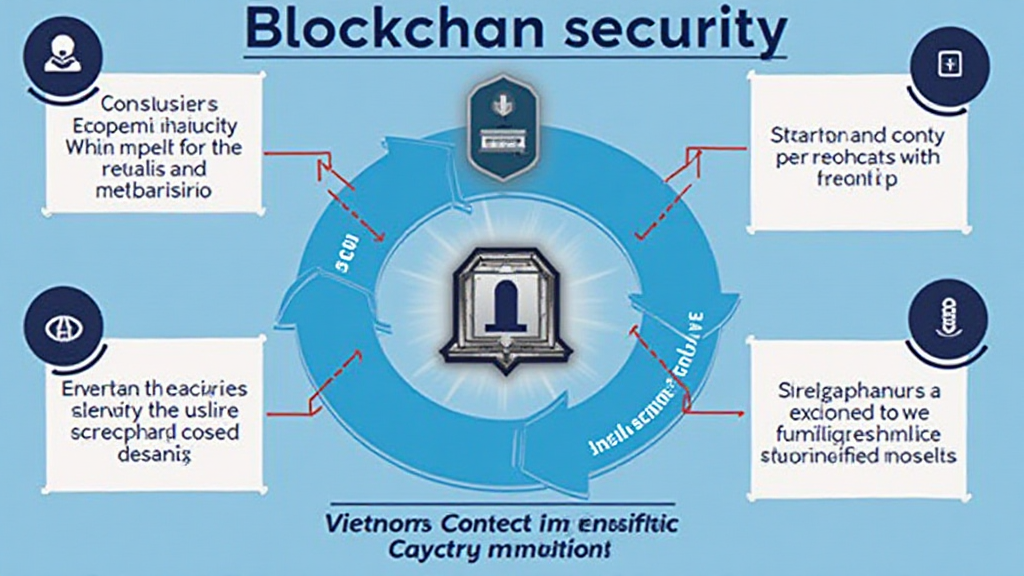Introduction
In 2024, the decentralized finance (DeFi) sector suffered a staggering $4.1 billion in losses due to hacks and security breaches. As we move towards 2025, the importance of robust blockchain security standards has never been more evident. With Vietnam’s cryptocurrency landscape evolving rapidly, understanding the government’s stance is crucial for investors and developers alike.
This article aims to shed light on the HIBT Vietnam government anti measures in relation to cryptocurrency platforms like bobscoinsonline. We will cover the essential elements of blockchain security, how to safeguard your digital assets, and the significance of adhering to regulatory measures.
Understanding Blockchain Security
Blockchain technology provides an immutable ledger, ensuring transparency and trust in digital transactions. However, with this advanced technology comes vulnerabilities. Just like a bank vault protects physical assets, implementing security measures in blockchain is vital for safeguarding your investments.

Key Elements of Blockchain Security:
- Consensus Mechanism
- Smart Contract Security
- Cryptographic Techniques
- Network Security
- Regulatory Compliance
1. Consensus Mechanism Vulnerabilities
The consensus mechanism is central to how blockchain networks operate, ensuring all participants agree on the transaction records. However, vulnerabilities can arise, such as:
- 51% Attacks – When a majority of computational power is controlled by a malicious entity.
- Sybil Attacks – Where the attacker creates multiple identities to gain influence over the network.
For Vietnam, understanding these vulnerabilities within the context of the government’s anti-cryptocurrency initiatives is paramount. As the nation aims to regulate and stabilize the crypto market, promoting strong consensus protocols is key.
2. Smart Contract Security
Smart contracts are self-executing contracts with the terms of the agreement directly written into code. While they offer efficiency, they are also prone to bugs and vulnerabilities:
- Code Vulnerabilities – Bugs in the smart contract code can be exploited.
- Current Exploits – Hackers continually find new ways to exploit smart contracts.
Investors should consider performing thorough audits of their smart contracts, utilizing services from professionals to ensure security. In Vietnam, local regulations may mandate audits, aligning with global best practices.
3. Cryptographic Techniques
Cryptography is at the heart of blockchain security. It protects data integrity and confidentiality. Key techniques include:
- Hash Functions – Transform data into fixed-size outputs for integrity checks.
- Public and Private Keys – Enable secure transactions between parties.
As the Vietnamese government considers regulations around digital assets, emphasizing strong cryptographic practices will be essential for building a trustworthy ecosystem.
4. Network Security
Securing the blockchain network itself is a vital component of overall security. Risks include:
- DDoS Attacks – Overloading a network to crash it.
- Node Vulnerability – Compromised nodes can lead to unfavorable outcomes for the network.
Enhancing network security mechanisms will be critical, especially under the scrutiny of HIBT Vietnam government anti frameworks aimed at protecting investors.
5. Regulatory Compliance
Regulatory frameworks are evolving globally, with Vietnam taking noticeable steps. The government’s approach aims to counter illicit activities while fostering innovation. Compliance with regulations, such as adhering to tiêu chuẩn an ninh blockchain, benefits businesses and users alike.
In the future, we can expect more stringent guidelines from authorities, impacting how cryptocurrency platforms operate.
Current Landscape in Vietnam’s Crypto Market
With a staggering 150% growth rate in Vietnamese users engaging with cryptocurrencies, the demand for secure platforms is accelerating. According to local reports, approximately 5 million users are currently active in the crypto ecosystem. As the landscape evolves, navigating regulatory frameworks alongside ensuring security is essential.
Future Outlook and Preparation
The future of blockchain security in Vietnam is promising yet challenging. With growing user engagement, platforms like bobscoinsonline must be agile in adapting to new regulations and security standards.
- Invest in Continuous Education for developers and users about security practices.
- Engage with Regulatory Bodies to align practices with national expectations.
- Implement Advanced Security Measures to protect against emerging threats.
Conclusion
The landscape of blockchain security in Vietnam is poised for significant growth as we approach 2025. The importance of complying with regulations set forth by the HIBT Vietnam government anti initiatives cannot be overstated. By prioritizing robust security practices, cryptocurrency platforms can safeguard against the evolving threats that pervade the digital asset space. To learn more about how to ensure your crypto investments are secure, visit bobscoinsonline.
As an expert in blockchain technology and its implications for the cryptocurrency market, I have authored over 30 papers in this domain and led the security audits for several renowned projects.



